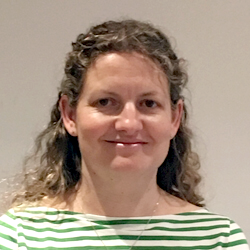 Guest blog by Emily Earle
Guest blog by Emily Earle
Emily’s 12 year old daughter was diagnosed with JIA in 2010 at the age of 2. Emily now volunteers for the charity ‘CCAA – Kids with Arthritis’ running their local area network of support groups. CCAA offers support to children with JIA and their families across England and Wales.
Life with a child who has a medical condition can be challenging at any time. Families usually manage because we have to. Quite simply, we do not get the choice to say: ‘No thanks! We’d rather our child wasn’t diagnosed with this condition!’ So we manage. I myself remember this time so vividly – the steep learning curve and sense of disbelief that my two-year-old daughter could possibly have arthritis, something that I previously associated only with old people.
I often use a story, ‘The Uninvited Guest’, to help illustrate what this situation can feel like for families. The story tells of the Ordinary family who live a very ordinary life. One day, the Ordinary family comes home from work and school to find a stranger in their house. This visitor isn’t someone they have invited and they don’t introduce themselves. Eventually, after a long search, they discover that the stranger’s name is ‘JIA’. Now the Ordinary family know who it is, they secretly hope they can get rid of this visitor – they want their previous life back. But JIA has brought them a job offer. This job includes 24/7 work and being permanently on-call: no salary and no annual leave. This job must be fitted alongside their existing jobs and commitments.They ask how long the contract is for and are told it is ‘indefinite’ because ‘nobody really knows’. I don’t imagine there are many parents who would voluntarily apply for this job, but this of course, is the job offer (and diagnosis) that JIA families do not have the option to refuse.
The Ordinary family gradually learns to cope with the havoc that JIA causes in their lives. They train up as home-nurses and add a sharps bin and sick-bucket to their kitchen. They spend hours on the phone coordinating care and attend multiple appointments. The Ordinary parents feel they might have to reassess their working hours and the Ordinary siblings get jealous, saying that JIA gets all the attention. Often, when the family reaches for help, they are faced with a teacher or a GP who hasn’t got a clue about who JIA is and they have to explain all over again. JIA’s behaviour is unpredictable and the parents sometimes disagree about the best way to handle things. The Ordinary family doesn’t feel very ordinary anymore.
Over time, this family reaches a truce with JIA and begins to find their feet with their new life. They move on from the difficulties of their journey to diagnosis; they begin to understand the inevitable ups and downs; they weather successes and failures of medications; they build support networks to lean on: ultimately, they accept that sometimes JIA is a domineering ‘uninvited guest’ and at other times it sits well behaved and quietly in the corner. And the same gradual acceptance of the ‘new normal’ is true for most families who have a child or young person diagnosed with JIA.
But COVID-19 has brought a new chapter to the story. Some families who were coping well have found themselves once again at sea in the face of an additional uninvited guest – the Coronavirus. The pandemic has brought new ways of interfacing with healthcare professionals via phone and video. Hospitals, usually our sanctuaries for help, care and treatment, with nurses and doctors who are almost like family, became places of fear, places where the invisible virus might be hiding. We have had to deal with changing advice as data and knowledge of the virus and its impact on our children has been hastily gathered and interpreted. The instruction for many to shield was removed when research showed our children were deemed to be at no greater risk; while to some this was a relief, for other families it was hard to accept.
 In this new chapter, we inhabit a world where the latest government directives tell us what is safe and what is dangerous, what is allowed and what is not. In this climate of daily graphs, data and briefings, it can feel harder than ever for families to wrangle with the comparative unpredictability of JIA, particularly within the four walls of lock-down confinement. There is certainly hope now – the arrival of the vaccines brings surety that eventually schools will reopen and restrictions will be lifted… but beyond this, the uncertainties of JIA remain: will this medication work for my child? When will this flare settle? Will the disease progress or remiss?
In this new chapter, we inhabit a world where the latest government directives tell us what is safe and what is dangerous, what is allowed and what is not. In this climate of daily graphs, data and briefings, it can feel harder than ever for families to wrangle with the comparative unpredictability of JIA, particularly within the four walls of lock-down confinement. There is certainly hope now – the arrival of the vaccines brings surety that eventually schools will reopen and restrictions will be lifted… but beyond this, the uncertainties of JIA remain: will this medication work for my child? When will this flare settle? Will the disease progress or remiss?
At CCAA, like all the charities supporting JIA families, we have been trying our best to listen to concerns and to appease anxieties where we can. Collaboration with healthcare professionals and other charities including ARMA has been vital in enabling us to provide timely and consistent information to the families we support. And throughout this pandemic, the provision of this information has proven to be the most welcomed tool of our arsenal. For while we all miss running our face-to-face events, we know that offering reliable information alongside peer support (the ability to connect with others in the same position) is a great way to make a difference in the lives of ordinary families living with JIA. This is one way in which we can persuade JIA to keep its place as an uninvited yet well-tolerated guest in the homes of families again.

